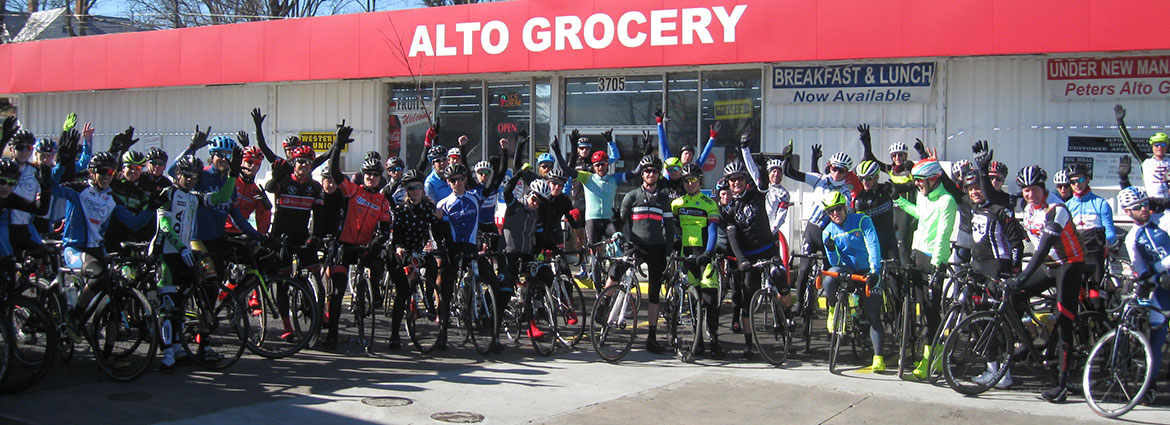The Appalachian Trail: Georgia
Gravity's Revenge
For me auld segotia,
Me Mate,
Me Karzen,
The Booted Bastard.
Like the bricks paving the road to Hell, we began our trek with good intentions. We both felt that most times most men are mere myrmidons choosing to travel down a well worn path. Few want to blaze a new trail, to forge a new route. Most hope to slide through life without scraping against any of the rough edges. Whenever the road tilts towards the sky, we often take the right hand turn on Easy Street instead of struggling forward to the top. But both of us believe that there are times when the bubble that represents the bounds of human possibility must be pressed on, pushed out, and made to bulge. In other words, a person ought to step out to his borders every now and then and have a look around. It's good for the heart, the soul, and the mind. If a person can fight his way back from the fringes, the effort will make one stronger.
It was with this battle tested maxim in mind that my coconspirator and spiritual bedfellow in matters of epic adventures and grueling physical feats, the ball busting barrister Matt Karzen, and I (David Crowe) decided to hike the Georgia section of the Appalachian Trail in three days. The total distance of the Georgia section of the A.T. is about 75 miles, but because we would need to double back to a road crossing when we touched the North Carolina line, the total hiking distance measured over 80 miles. We needed to average around 28 miles per day to complete the task. "No problema," I confidently confided to Karzen after swilling multiple, high octane cold beers, "I've hiked in Peru." What I failed to properly ponderate at the time was the fact that in Peru a bevy of burros carries my cargo on their backs while I merrily skim across the surface. On the A.T., I would have to shoulder my own burden. By the end of the trek on the A.T., my bulging bundle would cause crushing consequences. My poor, helpless feet would bear the bitter brunt of gravity's cruel revenge.
Karzen worried me, like a rattlesnake shaking its moneymaker. Not only was he a lawyer, but a former prosecutor to boot-the worst kind of pettifogger. He'd also completed several 100 mile runs in less than 24 hours. This type of feet pounding punishment was old hat to him. He'd run a marathon distance up Pike's Peak and he'd finished the legendary Leadville 100 in Colorado. He'd run Lord only knows how many marathons, and I had testimonial evidence direct from the source that he'd nearly killed his law partner, Jeff Rothman, on an all day run. In the weeks leading up to the firing of the starter's gun, sometimes in the dark of night I'd see Karzen's face grinning at me like the devil in disguise. I'd wake up in a cold sweat, my arms swimming in the air. But I've been to Peru, I'd remind myself, and slide off into a restless slumber.
During the planning stages of the trek I made my list and checked it twice. Karzen and I compared lists, and added pertinent and prescient remarks about each other's. I noted he had left off such essentials as mouthwash, hand sanitizer, nail clippers, a hand held mirror, books, fishing poles, a generator, a boom box, and a cooler for all the cold beer we'd carry. Karzen just flashed his pearly whites and said that he was watching his weight. Karzen has about as much fat on his body as an Ethiopian on a hunger strike, so I thought he'd really missed the boat on this score. "I'll only carry as much as a gentleman of leisure requires," I finally conceded. I crossed the boom box off the list.
I made an itinerary for the trek. I cross referenced several books on the Georgia section of the A.T. Actually, I merely calculated where the closest campsite was to the 28 mile mark, and at that spot drew an x. I circulated the itinerary to several other interested parties, but the daily distance we intended to hike sent them all cowering for cover. "28 miles," they'd say and gaze off into empty space wrinkling their brows, "exactly how far is that?" "I'm not real sure," I'd have to admit. In the end, it was only Karzen and myself who mustered the daring to meet this epic quest head on. We sailed right by the "Easy Street Exit."
The night before we departed I stuffed my pack with all the items on my list. After doing so, I heaved the cumbersome load onto my back and immediately went corkscrewing down to the floor. I nearly wrenched my back out of joint. I was pinned beneath the pack. I screamed for my wife to come and rescue me, a task she's undertaken more than once or twice in the last three decades. She sat down beside me, back braced against the wall, and pushing with both feet, finally managed to roll the beast off my body. I immediately started removing items. Tears rolled down my cheeks as first I unloaded the cooler, then the beer. Perhaps I could keep the beer and go without water, I thought. In the end, I took an empty Coke bottle filled with white lightning brewed in the nooks and crannies of the North Georgia Mountains. Some form of mind numbing libation was an absolute must.
After unpacking everything and repacking, I again hoisted the unwieldy bundle onto my back. Though I managed to stay upright, I felt, and looked, like the Leaning Tower of Pisa. I realized then that my swanky two-person tent, the one that the burros carried in Peru, was an onerous, bulky burden. But it was too late, I was committed, it had to be this tent. I tried not to think about it. Anyway, Karzen and I agreed that we would swap off the tent every two hours. This would allow plenty of time to recover. Genius, I told myself. My sore back the next morning from walking only ten yards with my 400 pound pack should have been a portent of what was to follow, but I simply chose to think about something else. It's a coping device I've honed to near perfection.
Day 1: Thursday 17 April 2008
We woke up long before the cock even crowed and were near the trailhead at Springer Mountain in the wee hours of morning. Bob the Egg Man Craig met us at Brother Billy's house outside Ellijay and rode with us to the southern terminus of the A.T. In the parking lot we noticed a few other north bound hikers also preparing to set off into the wild blue yonder. Our packs were ready to go, so all we had to do was hoist the burden onto our backs, buckle up, click our heels twice, and start walking. As I took my first step of many I looked down at my shoes and whispered, "Feet don't fail me now."
The southern terminus of the A.T. at Springer is already a goodly ways back into the mountains. To reach the trailhead at Springer a person turns off the rural but paved byways of Fannin County and travels on a dirt and gravel road as it snakes it way upwards and plunges a person deeper and deeper into the hidden valleys of these ancient mountains. When we started our trek we never had to walk out of civilization and into the backcountry: We were already in the middle of nowhere-exactly where we wanted to be.
We began our long march around 8:30 a.m. The skies were cobalt blue and it was a warm day. We wore shorts. Bobby started out with us and hiked about a mile in before turning back and leaving us to fend for ourselves. The sensible fellow put my pack on his back at the car to see how heavy it was and refused to carry it one step farther. He smelled my rat. My plan was for him to carry my pack as far as I could lure him into doing. Once I managed to finagle the pack onto his back, I would start talking and not stop until we were ten miles in, hopefully causing him to relieve me of my load for as long as possible. Bobby was having none of it. Not only did he refuse the tender of my pack, he turned back as soon as the trail tilted down.
The first section of the A.T. from Springer Mountain to Woody Gap is about 20 miles. Greg Morocco, another ardent acolyte in matters of the epic quest, planned to meet us at Woody Gap. He planned to hike in from Woody towards us, and continue with us for a bit. We figured we could average about 3 miles an hour-much of Springer was labeled "moderate" by guide books-so we thought we would cross Woody Gap around 4 p.m. (On more strenuous sections we assumed we could average about 2.5 miles per hour, or better.) I carried my cell phone (we could get service on top of mountains) and we planned to coordinate our hookup with Morocco on the fly. After crossing Woody, we planned to venture another 8 miles into Section 2 of the A.T. and camp at Slaughter Creek. Starting out the trek, I imagined myself at the Slaughter Creek campsite with my feet propped up on a stump, hands locked behind my head, fire crackling, clean as a whistle, sipping moonshine, and ruminating about the day's splendid perambulations. O brother, where art thou?
After Bobby departed we remained upbeat. Karzen and I chatted the entire first two hours while walking single file, Karzen in front setting the pace and the man carrying the tent bringing up the rear. The first two hours sailed by and at our first break I was more than happy to unhitch the tent from my back and transfer it to his. As we were preparing to stop, another trekker passed us on a long, gradual incline. I was surprised because I thought we'd made good time and we didn't expect to be passed by anyone. He stepped around us, much to my dismay, and boogied on up the trail, around a bend, and out of sight. He did not look particularly fit, and he was carrying a heavy load too. My self worth, a fragile creature, took a temporary hit.
We continued yammering away during the early stretches of Karzen's first fulfillment of his tent obligation. After my shoulders were unburdened from the weight of the tent, at first, I felt as if I'd float away. My spirits soared, this was easy. Eventually, we settled into our own walking tempo and silently stepped up the Appalachian Trail. In order to trek 28 miles a day, we realized we needed to set our shoulders to the wheel and keep them there. There was no time for tomfoolery-this trek was not about having fun. As previously stated, this adventure was about forcing boundaries to bend and bulge.
During Karzen's first two hour shift, not only did we overtake the trekker who'd passed us earlier, but we passed another half dozen or so headed in the same direction as us: north. We were high stepping up the trail, doing the Blitzkrieg Bop. When wee passed the trekker who'd overtaken us earlier, he was leaning on a tree. He was huffing like a blowfish. He'd started too fast and now he'd blown a gasket. We smiled and glided by. I felt a little better about myself-crushing others does that for me. Call me vain.
We passed another couple on a thru-hike. Their trail names escape me, but both monikers symbolized cashing out of the rat race for awhile. They'd terminated their lease, and there only earthly abode was that patch of dirt directly beneath their feet. As are all trekkers on the A.T., they were earthy and au natural. Living in the wilderness, for even one day, tends to wash away the trappings of designer jeans, sweet smelling emoluments, bath salts, hair gels, ruby red lips, and shiny shoes. But when they said they were on their third day of their trip, Karzen and I eyed each other like two well trained assassins after a kill-we were still on Karzen's first pull. My self worth, like a wobbling weeble, completely regained its upright position.
We continued following the white blazes marking the trail as we crossed several wide streams and forest service roads. We intersected both the Benton Mackaye Trail and the Duncan Ridge Trail. Both trails even merged with the A.T. for a brief stretch, so it was as if we were getting three for the price of one. The sun rose higher in the sky and splattered onto the forest floor in splotches of light. We passed more trekkers. No one passed up. We were making good time. Life was grand.
During my second tent pull, things changed abruptly. After an hour with the two-person beast on my back, five hours total for the day, I suddenly slowed. The weight of my load seemed to have doubled. The impetus of the pack was driving me into the earth, slowing my forward progress. I felt like I was moving through mud. Karzen stepped away while I slowly sank. I felt like I was carrying the world and all the gluttons in it on my back. I fought back a wave of panic. An avalanche of doubts tumbled through my brain. Oh shit, I thought, we've only just started. I called Morocco.
When he answered, I screamed, "Where the hale are you?" I quickly regained my composure. "I mean, you're coming aren't you? This is great fun. You should come and carry the tent. It's great. For gawd's sake, don't pass this chance up." I was like a madman off his medication. We needed him to carry the godforsaken tent for a bit. I now realized carrying this tent was a major obstacle. I was desperate. He said he was coming. I fell to the ground and wept. I was wiped out, and we were only six hours in on the first day. We still had a lot of ground to cover. Karzen reached down and bitch slapped me in the face and said, "Don't go to sleep. You'll never wake up." He yanked me up by the scruff of my neck and kicked me up the trail.
During Karzen's second tango with the tent I tried to calculate where we were with various reference points in my guide book. I was satisfied we were on target until I realized I'd made a blunder. At one point I said, "We're at Gooch Gap. We're averaging about 3 miles an hour." I was secretly disappointed. I had hoped we were doing 4 miles on this, the easiest section of the A.T. But an hour later we arrived at a sign that read "Gooch Gap." My lips turned down. As I was attempting to calculate our exact speed and thus the logic of our lofty goals, the madman that had taken up residence in my mind for this trek started banging cymbals and clanging tambourines, making it impossible to complete the simple calculation. Soon enough, I just forgot about it. What else could I do but just keep walking?
Morocco and his gal pal Jennifer finally ran into us about 2 miles from Woody Gap. They had hiked in. They were chipper and energetic. I pretended to be. They had water. I'd run out. I left my water filter in the car, so I could only drink the agua I could carry. I'd drank my last drop several miles back. Idiot. I lay on my back in the dirt and emptied a gallon into my gullet. Karzen kicked me in the ribs and said, "Get up, you fool. You're embarrassing me."
We convinced Morocco not only to carry the tent, but to also carry Karzen's entire pack. Karzen grinned like a death row inmate granted a temporary reprieve, as did I. Any time Morocco spent yoked to the tent would effectively delay my own coupling with the detestable yellow beast. After only two steps, Morocco said, "Great gawd, this thing is heavy. It's like carrying a dead person." We both agreed.
It was a long 2 miles to Woody Gap. Karzen and I from exhaustion, and Morocco due to his load, moved like turtles on valium, while Jen danced away up the slope. She left us behind. When we reached Woody Gap, I felt relief, even if I knew it was only a brief respite. We sat on the grass and shoved more food and water into our mouths. The sun was shining, but it was lower in the sky, and it was windy. Jen had three ice cold beers in a cooler. I stuffed two in my pack and tommy-knockered the third on the spot in one masterful pull. I was instantly loopy. My confidence, as is usual when I'm drunk, swelled.
We couldn't hang fire for long-it was five in the afternoon when we reached Woody, and we still had nearly 8 miles to cover-so after thirty minutes we said our goodbyes, and crossed the first paved road of our journey, and walked into Section 2 of the A.T. Section 2 is about 10 miles long. It begins at Woody Gap and ends at Neels Gap. The Walasi-Yi Center is located at Neels Gap and is a haven for hikers. It is an outdoors' store offering everything: tents, packs, ropes, food, drink, clothing, tools, books, maps, souvenirs, and first aid supplies. It also has rooms and showers for weary souls and begrimed bodies, and the atmosphere around the Center is relaxed and laid back. We planned on camping 2 miles from the Center, and would refuel there first thing in the morning. Our estimated time of arrival tomorrow morning was around 9 a.m. We planned to get an early start.
Hiking into Section 2 I was committed to the task. Karzen still had an hour to go with the tent, so it was back on his shoulders to begin with. We walked for three hours solid, only stopping for five minutes to break out the crane and hoist the tent from his back to mine along the way. It was now dusk and nearing dark. During the last hour, we passed several other hikers who'd called it a day and had set up camp. Established campsites are located off to the side of the trail and most can be seen as a hiker walks by. These fellow foot travelers had their tents up as well as their feet. Many were sitting around their campsite laughing and cavorting and carrying on. We, on the other hand, were still walking. Even some of these certified crazies looked at us like we were certified crazies-talk about the pot and the kettle.
With darkness descending, at the 25 mile mark, we opted to call it a day. We were at Jarrad Gap. (There was a sign.) "We'll make up the 3 miles tomorrow," we both agreed with a sheepish grin. My little madman started banging cymbals again and I forgot to tabulate the exact number of miles we would need to hike the next day: Knowing the future is not always best.
We pitched the tent, scrounged for wood, built a fire, each slammed a beer from my back pack, and sat down and ate. The aforementioned tasks each take a little time to complete, and by the time we actually sat down and ate, it was well past dark. For postprandial festivities, I fished the plastic bottle of moonshine out of my bag and we each slurped down two capfuls of the secret sauce. I'm not sure why pouring liquid fire down my intestinal tract gives me not only a feeling of warmth, but also a sense of well-being, but brother, it does. When Karzen wasn't looking, I downed another capful of the liquid lightning, but the fact that I was now glowing like a streetlight might have revealed my legerdemain.
After the somniferous solvent kicked in, we stretched out on our backs, in the dirt, under the stars, in sarchophagal repose. Our hands were clasped together on our stomach and our feet crossed at the ankles. Our eyes were closed. We could have easily been mistaken for two dead men. Laughter and other chatter drifted over from a nearby camp. The night was cool and comfortable, and the moon full and bright. Had not Karzen eventually said, "I think I better call it a night," I would have reclined on the ground in a recumbent posture all night. We tossed a bag with all our food over a tree and pulled it upwards with an attached rope, then crawled inside the tent and fell asleep on the hard surface of the earth. I dreamed of fast cars, loose women, moonshine, and of having the hale beaten out of my feet with a baseball bat.
Day 2: Friday 18 April
Back home in the holler, as soon as the first molecule of morning light floats into my dank hovel, I leap out of bed. I assume I'm quick-wired this way. I also assumed that the same sort of lethal morning leap would occur on the A.T. adventure: It didn't. I assumed it would be easier to wake because I'd be sleeping on the cold, hard earth: It wasn't. My battered body kept me pinned me to the ground until 8 a.m. The moonshine held me there another thirty minutes. When I finally unzipped the tent and stuck my rimy tongue out into the morning air, it was already 8:30, the same time we'd taken our first steps the day before. Karzen woke a few minutes earlier than I did, but not many. Remember, however, I was one capful of hot sauce in front of him. I reckon one capful of rocket fuel is the equivalent of thirty minutes.
We stirred slowly-we were working kinks and chinks out of all our slow moving parts. My joints creaked and cracked. My entire body ached. My shoulders, my neck, my back, my arms, my quads, and my calves were swimming in seas of lactic acid. But grate-gawd-awe-mighty, my feet felt like they'd been crushed beneath five freight trains. The bones on the bottom of my feet ached like they'd been driven through with steel spikes. The back of my left heel had blistered and my right heel wasn't far behind. The top of my feet were abloom with hot spots. Karzen said his feet were fine; he was wearing boots: No good, booted bastard.
When one is camping, it's impossible to wake up and walk off. There are chores. Once we finally managed to massage the bumps and the lumps out of our muscles, or at least move them to the side, we still had to dress, repack our bags (we had to dump out everything to unpack), eat, take down the tent, dress the wounds on my feet, and clean our campsite. There were also morning ablutions to consider. I only had a small amount of water left, so it was either washing my stinking, dirt-caked, putrid body or pouring the water down my pie hole. Not having a filter or any water tablets was becoming more problematic. I wisely chose the latter and drank the water instead. With no water to clean with or with which to brush my teeth, I now considered myself to be an official member of the patchwork quilt of musty tramps presently stepping down the A.T who are surrounded by a poisonous cloud of his or her own gases and amorphous vapors. The feeling gave me a sense of belonging to a larger community, like lepers in the Old Testament. Looking back now, I recognize the first signs that my glue may have begun to melt.
I hoisted the pack with the tent onto my back and at 9:15 in the morning and we shoved off. After a short distance we trudged up the steep slope to Blood Mountain. At the top on a rocky bald we took a brief gander across the bosky valley, and then were on our way again, short-stepping down the backside of Blood and headed for Neels Gap. It took nearly two-and-half hours to reach the Walasi-Yi Center, but when it came into view, it was like coming upon water in the desert. Even though the place was packed, I quickly concluded that my needs should be serviced first. "Out of the way you stinking plebs," I shouted as I trotted into the parking lot.
We unloaded our packs on a picnic table and sat in the sun. The good folk at the Center brewed hot coffee for us, and we ate and drank until my belly bulged. I bought blister kits at the store and gave my feet some much needed attention. My blister on my heel was bloated like a fat tic, so I slit it open and covered the tear with a blister patch. I put blister patches on all my hot spots. I put square band-aids over other problem areas. Then, I wrapped my feet from heel to toe in tape, like a mummy. My feet looked like two intrepid fools.
There were other hikers sprawled out at the Walasi-Yi Center. One young girl in her mid-twenties said she was going all the way to Mount Katahdin in Maine, the northern terminus over 2,000 miles away. She had just returned from Nepal. She had hiked to base camp at Everest. She'd done other big walkabouts while living amongst the biggest, snowcapped giants on earth, the Himalayas. She said it was good to be home, good to be hiking here in the U.S. But home for her was these woods. These were real nomads, not wannabees like me. This lady and her friends were truly unencumbered by the normal tentacles that keep us tethered to one locale. But I'm also a realist-she was probably rich. Still, kudos to her-she's bending, pushing, and pressing on the walls of her world.
We left the Walasi-Yi Center at 12:30. We were running behind schedule, but the idea of a schedule was already beginning to fade like a lifting fog. We were starting to move by feel, to walk when we ready, and when our bodies sensed it was time to go. The day was warm, and the sun was once again blasting away in the big blue sky. We were refreshed and energized. We were ready to meet the day. At least, it seemed that way at the time.
Section 3 of the A.T. is only 7 miles, but is one of the most strenuous sections in Georgia. There are several severe pitches as the trail gains elevation on its roller coaster rise to Hogpen Gap. The closer the trail comes to the end of Section 3 at Hogpen Gap, the more strenuous the rugged route becomes. Karzen started out with the tent on this section, but it would take both of us to push it over the sharp angle at the top. Sisyphus should have had such a friend. We pushed over the top of Hoggy and forged ahead. When we crossed the Richard Russell Scenic Highway at Hogpen Gap, it was 3:30 in the afternoon. The area was deserted. We were way behind schedule. We weren't worried at all.
Section 4 from Hogpen Gap to Unicoi Gap is nearly 14 miles, and is rated moderate. I'd hiked this section before, and I remembered it was one of my favorites. I recalled long, moderate climbs and stretches of level ground. This section of the trail was fast. We both thought we could make good time, but 14 miles is a long way. That fact is hammered home when one is covering the distance one step at a time.
I was in touch with Morocco and Bobby via cell phone. They planned to hike in from Unicoi and meet us. If we averaged 3 miles per hour, that would put us at Unicoi around 8:00 that evening. I told Bobby to expect us then. He said they'd plan accordingly. We planned to meet them on the trail, unload the pack on Morocco, and have them hike with us as long as possible. At this point, begging wasn't beneath me. The next day we only had to carry the tent to Dick's Head Creek Gap where we could dump the tent in my car and finish the trek. Things were looking up. Before hanging up with Bobby I said, "There's one more thing. Bring beer." I think he might have heard my voice cracking. He laughed. Did he think I was joking? "I'll give you a thousand dollars," I whispered so Karzen couldn't hear me. My feet were on fire, my shoulders were locking up, my neck was sunburned, my back throbbed, and my pride had taken a pounding. I needed something to kill the pain.
A word about our surroundings: Our guide book indicated we were cutting through several different forests, but to me, it just looked like one continuous, rolling expanse of trees. There are no visible lines of demarcation, other than road crossings, separating one forest from another. And the woods press right up against the pavement on both sides, threatening to simply swallow the blacktop. The brief amount of time we spent clopping across asphalt seemed like we were briefly stepping out of one realm and into another. As soon as we crossed a road we dove back into the trees and left all traces of civilization behind us again. Many of those zooming by in cars were oblivious to the fact a separate universe lay just outside the windows of their cars.
By now, nearing the close of business on the second day, I noticed that the forest had settled into a distinct rhythm of colors and images. Shades of brown, green, gray, and black dominate the landscape. But even though there is a consistency and a pattern to the color on the A.T., around every corner and every bend in the trail, and at the bottom of each downhill or over the top of a climb, a different scene spreads itself out before a trekker. On the A.T. a person is never looking at the same landscape for long. A thousand hardwoods that took decades and decades to grow might dot one hillside for as far as the eye can see, but take three steps and round a bend, and a thousand evergreens rise up on the north side of the slope. Though the two stands of trees are close in proximity, they live in strikingly different environs. Walking down this thin little black thread that courses through these Appalachian Mountains is like constantly stepping through doors, exiting one grand hall in a sultan's palace and simultaneously entering another.
Even though it was April and the weather was warm and dry, the hardwoods at the higher elevations had not sprouted leaves and were still barren. We could see the entirety of their woody skeletons from the base of the trunk to the tiptop of the highest branch. A plush covering of green leaves would clothe the trees and cover their branches later in the spring, but now, I could see each and every deformity of each leafless tree. Every hardwood has some type of bulbous lump, cancerous blemish, gnarled joint, knotty tumor, oddly twisted limb or branch, hollowed out trunk hole, course skin, or plain missing piece. And the trees don't grow straight up into the air like corn. Instead, because they grow on a beveled surface, their limbs and branches twist and turn, and bend and bow, at odd and incompetent angles. None are perfect, but mixed together, these towering oddities of nature fuse to create an inimitable work of art, and something to behold. I could have stood still and stared for hours.
The groves of evergreen-pines and cedars interspersed with Tuliptrees and Striped Maples-brought sweet relief. We were usually in the shade when we walked through the stands of evergreens. The sun never penetrates the canopy in many sections of these dense, viridescent cathedrals. The air is cool and damp, and the ground is wet and moist. Even on dry days, water trickles down in streams and under rocks in steady flows, finding an opening occasionally in one of the many natural springs lining the trail and marked with blue blazes on the trees.
The trail itself in the evergreen forests is often black, the color of the fertile, soft loam underfoot. The forest floor in these cool, wet sections is often covered with waist high ferns with fronds so big they look like palm trees. Plush, green moss blankets rocks and rotting logs in thick piles. The moss is screaming green and is so dense in spots that it hangs over the edge of the surface it covers like a tablecloth. Monkey grass with two-foot blades thrives here and dots the landscape like pumpkins in a patch. These wet sections of the forest must resemble the deep, dark innards of a tropical rain forest during the Jurassic Period. A modern day dinosaur, the salamander, calls these damp and dark sections home.
The cycle of life is never more evident than when observing the trees in the forest for a continuous period of time. The forest exists in all stages of life at once: Some trees are only budding, their pliable stems straining two inches out of the ground; other trees with enormous girth and heft are towering skyward, their uppermost branches reaching two hundred feet in the air; some waterlogged behemoths have finally succumbed beneath their own weight, toppled over by the wind, tearing huge holes in the earth where their roots have pulled free from the earth; some trees are wet and decaying, lying prone as they slowly melt back into the earth. The forest floor is also littered with leaves-everywhere there are leaves, in every direction, on every surface, and as far as the eye can see. The leaves continually sprout from the trees in spring, fall to the forest floor in autumn, and disintegrate back into the surface of earth over time. Ashes to ashes, the circle of life.
The multifarious rocks in this section of the A.T. must also be mentioned. Rocks and boulders of all sizes and all shapes are scattered throughout these mountains. In many sections the rocks are the size of concrete blocks and look as if they've been sneezed down the entire side of a mountain in one mighty blast. Other boulders are as big as mobile homes and V.W. buses and appear to have rained down from the heavens many, many millennia prior. An extraordinary amount of rocks of all shapes and sizes appear to have tumbled down streams for eons. The boulders have been embedded in the mountainside for so long now that they've become a piece of the ground. A thousand cranes couldn't pull them free. Many of these boulders provide splendid spots to roast in the sun.
Smaller rocks have been scattered by hand along certain sections of the trail where water drains to help slow erosion, and also to help with one's footing, but the most amazing rocks are those that have been fashioned into steps. Somewhat rectangular shaped rocks, many that must weigh in at over 300 pounds, have somehow been moved into position and wedged into the hillside to form rock steps in steep sections of the trail. There are no roads nearby, and no way to haul in equipment. These monstrosities were moved here and set into the ground by human hand, but how? This conundrum left me as vexed. But the great pyramid at Giza, the granite slabs at Stonehenge, and the giant stone statues of Easter Island prove that Man, when he makes up his mind, has an ingenious capacity for creative solutions.
We were making steady progress on Section 4, but our heavy packs were continuing to take their toll on both our bodies. By my third tent pull-nine and ten hours into the day-I was seeing stars. My legs felt like two hollow cylinders sloshing with scalding lactic acid. My feet felt like they'd been hacked to pieces with ginsu knives, rubbed with salt, baked in a burning oven, gnawed on by a mangy dog, run over by a steam roller, smashed to bits with a jackhammer, stabbed with forks, and clobbered with a rolling pin. "Matt, how are your feet?" I sheepishly asked while gimping down the trail. I hoped that his feet, like mine, were sizzling florets of pain. "These boots are really great" was his reply. At that moment, I loathed Karzen and his boots.
Around 7 p.m. it was obvious we would not make Unicoi Gap by 8, but I couldn't let Bobby and Morocco know-I had to have the beer. "Yea, we're right on target," I told Bob. I lied. They were hiking in towards us. "Where the hale are you?' Bobby called and asked a little later. "Keep coming," I pleaded, "we're just around the bend. I think I can see you." They confirmed they had the beer, so at 8 p.m. when we still had not made contact and they said they were leaving, I screamed, "Don't leave me here to die in the woods without any cold beer." "Don't worry, we'll stash the beer," Morocco replied. "Oh, ok. You can go." I hadn't thought of that. They told me where the beer was hidden and left us for the wolves. Onward we marched.
By 9 p.m. it was black dark. We put on headlamps and moved cautiously down the trail, still determined to reach our goal. We came up on a marker indicating we had reached Chattahoochee Gap. We still had 4.5 miles to go. Progress was slow, hope fading. At 9:45, still around 3 miles from pay dirt, I fell to my knees and admitted defeat. Our bodies were knackered; we were both plum tuckered out. We stopped and pitched the tent, ate, and crawled into our bags. Since I had no cold beer to swill, I felt entitled to double doses of moonshine. I threw back four heaping helpings in quick succession. Karzen stuck with two. The pangs of compunction that normally accompany excessive amounts of alcohol were overwhelmed by the warm glow of sweet relief that came soon after. The world was righted, temporarily. Though the ground on which I lay was again hard as concrete, and though an odoriferous stench wafted out of my sleeping bag, I was as comfortable as a fat cat in a warm blanket.
We were sleeping at 3,500 feet in the air, and that night a strong storm blew through the neighborhood. A wicked wind rumbled through the treetops. The wind was followed by a blowing rain that pattered off the top of the tent for the entirety of the night. We were warm and snug inside the tent, and the metrical tapping on the tarp was music to my ears. I counted bottles of Heineken jumping over a fence and drifted off into a deep sleep. I dreamed of fast cars, loose women, moonshine, and stomping the shit out of Karzen with his boots.
Day 3: Saturday 19 April
The next morning it was even harder to force myself out of my warm, malodorous sleeping cocoon than it was the day before. The rain was still tap dancing off the roof, and packing up in the cold mizzle was not high on the priority list. Plus, my temples were pulsing from the moonshine. Soon enough we were forced to rise and face the day. We dressed and packed inside the tent, and although sartorial splendor has never been my métier, this day I looked even worse than usual. My feet were nasty, my face was unshaven, my fingernails were black with tar, my breath smelled like rotten eggs, I hadn't changed my underwear, and I just didn't give a damn. I decided my trail name was Pigpen. I did have some malicious satisfaction when Karzen woke up wet. It seems we hadn't pulled the tent cover far enough down on his side where he slept. "I'm so terribly sorry," I said, slightly smiling. Booted Bastard.
It was my turn with the tent and my poor, pitiful feet were singing soprano from the pain. Karzen stepped up to the plate and offered to pull my shift. During the night we had decided to stash the tent in the woods once we reached Unicoi Gap, and pick it up later in the day when we were driving home. If Karzen took my tent shift now, my time with the yellow beast was over, finis, done for good. Hallelujah, Josephine! Before Karzen could change his mind I said, "Ok," dropped the tent, and walked off.
It was still drizzling when we set out that morning. Fog enveloped the mountain. It was hard to see more that ten paces. The last mile to Unicoi is a treacherous, rocky descent, and even without the tent, I was slipping and sliding like a newborn penguin on ice. I came across my name in the trail spelled out with rocks. A question mark followed. This was the handy work of Bobby and Morocco and the question mark was a frontal assault on my manhood. I knew what they meant. I feared they were right.
After two hours of gingerly stepping down the slippery slope, I finally reached Unicoi Gap. I looked behind a rock and there it was-a dirty, soaking wet plastic bag filled with fruit, water, and Heineken. Sweet Baby Jane, come to Papa. About five minutes later Karzen followed, but I noticed he was walking with his head aslant and his body was crooked. When he reached me he told me he'd fallen on the tricky descent and snapped his neck out of joint-he couldn't continue. Karzen said he'd hitch a ride to Helen and wait on me there, and that I should finish the long march. I could pick him up in the car later on my way back. My first reaction was to go with him: Booted Bastard's not going to leave my lonely ass out here to fend for myself, I thought. But my car-someone had to go. I dumped most of my belongings, including the tent, in Karzen's outstretched arms. I kept food and water. I kept one Heineken, opting to drink it later, and set off once again into the bosky yonder, but this time without me auld segotia, me mate, me Karzen. I'd miss the Booted Bastard. I'd grown partial to him.
Section 6 of the A.T. from Unicoi to Dick's Creek Gap is about 17 miles, and my car was stashed at the end. The Georgia-North Carolina line is about 8 miles beyond that, but I'd already determined that continuing past my car was not an option-there wasn't enough daylight. Hiking 36 miles on the last day of my journey wasn't in the cards.
I left Unicoi at 11:30 a.m. and I immediately stepped up another long, steep ascent to Indian Grave Gap. After dropping back down, the trail quickly climbs again, this time up the arduous grade of Tray Mountain. It was clear to me by now that the Georgia section of the A.T. is a roller coaster ride with continual undulations. There are a few flat stretches, but not many. Some of the grades are moderate, but others kick skyward at cantankerous angles. This is a tough trail to hike, but the tougher the task, the greater the satisfaction. This was a day I'd have to reach deep down into the reserves.
Topping Tray Mountain and heading down the north side I began to pass a passel of boy scouts headed in the opposite direction. I was descending and they were climbing. They were spread out over the course of a mile. The first scout, a young stripling, was long limbed and was motoring up the trail at breakneck speed with a smile on his face. His hair was drenched in sweat and was plastered to his forehead. One minute behind, three more followed. They were in difficulty. They'd probably tried to stay with the long limbed lad, but he'd turned on the master-blasters and rocketed away. Now, all three were panting for air. We all said, "Good day," and sailed right by.
The further down the slope of Tray Mountain I descended, the more the avoirdupois of these fine lads increased. When I passed the final two scouts at the backend of the bunch, it was obvious that their ponderosity, not to mention their heaving packs, would inhibit their forward progress. I had just come down the steep slope, so I knew these two heavyweights had their work cut out for them. They were already struggling with every step.
My sinister side suddenly surfaced. I smiled at the two large lads and said, "It gets easier up there." I turned and pointed up the trail, which dropped like a plumb line from the clouds. A person could see it didn't get easier-ahead, it was a vertical wall. But they both looked at me and said, "Really, mister?" A twelve foot grin spread across my face and I said, "Yes, right up there." I pointed again to the steepest pitch. They started jogging towards it, packs jouncing and jangling on their backs, as I stepped away. One day, I thought, my cruelties will do me in.
I passed about fifteen or twenty folks hiking in both directions in the first 8 miles, but after that, there was no one else. It was just me, my two angry feet, and these woods. Alone, the sounds of the forest crystallize. The woods are rarely quiet. The wind is always blowing and billowing, swishing and swooshing, and rushing and rumbling, through the top of the trees. Branches shake and shiver in the breeze like a thousand hissing snakes. Squirrels scamper hither and thither across dry leaves that are so brittle that they crack and crepitate as if stepped on by marauding elephants. Birds sing, squawk, screech, hoot, whistle, crow, caw, cry and peck. Water trickles, tumbles, drops, streams, burbles, rushes, plops, purls, splashes, and flows. The forest is a polyphonic symphony of sound.
I didn't have a watch with me, so I never knew what time it was; I was just walking. But in the woods, time takes on a different feel. There are only cycles of time: morning, afternoon, dusk, and night. Each cycle slides into the next in undetectable gradations. Manmade time is sliced up into abrupt sections, but that's not what nature intends. Time's slow slide through each day and each yearly cycle has been genetically encoded into my forbears' being for hundreds of thousands of years. Both the body and the mind readjust to cyclical time with great ease. It feels like coming home. Freeing oneself from the shackles of manmade time, even if only temporarily, is one of the common passions shared by all of these dirty, smelly, mangy, dreadlocked, bad breath, and eternally hungry, but always smiling, brethrens of mine who feet stamp up and down this long, winding trail: Lord love us all, despite our unholy stank.
Not to focus on my feet, but those two heathens were boiling with pain halfway through the last section. I still had about 8 miles to walk. My feet were turning to raw, bloody hamburger. I tried not to think about my feet, but found the task impossible. It felt like I was walking on razor wire. If I'd had a machete, I believe I would have hacked off my two feet at the ankles. I had convinced myself by now that feet weren't all that they were cracked up to be. Plus, I'd still have my hands. My mouth too. And I have a helluva an excuse back home in the holler when it came to mowing the grass. I walked down the trail ruminating about life without feet. It didn't seem that bad, but by now I was adrift at sea, the shores of sanity fading on the horizon.
I was walking up the trail when my life, as it is wont to do, took a sharp change of course without any consultation with me. As I was stepping up the trail I froze in my tracks. Terror surged through me like an electric charge. A bear was in the middle of the trail twenty-five yards directly in front of me. The startled bear turned his head and looked me square in the eyes. Scenes from my life rolled through my mind like a spinning reel that had slipped of the tracks. My thoughts in the next two seconds could fill a hundred volumes of books. The most pressing idea at the front of my lobe was that I might be eaten in the next few seconds.
The bear rose up on its haunches. He must have weighed 500 pounds. I was too tired to move. Though we looked at each other for only a second before the bear turned and bolted away, it seemed like an eternity. I contemplated the idea of playing dead, as the experts say to do. Right. If the bear came my way, I planned to drop my pack and head for the hills, screaming like a schoolgirl all the way. But I remembered my feet. In my condition, I may have had no choice but to try and talk the bear out of it. I am a lawyer after all.
Thankfully, the bear bounded off to the side of the trail and disappeared into the dark forest. After I lost sight of the bear, I could still hear small trees and bushes breaking beneath its enormous bulk as it slammed through the woods. The power of the bear was never more evident than when listening to the sounds of breakage the massive black beast left in its wake. It sent icy shivers racing down my spine.
After the bear was long gone, I realized that I was still standing in my tracks-I never moved. I was certain that the bear would be waiting for me up the trail behind a tree, and jump out and slice me to pieces with his massive paws when I walked by. I knew experts say that black bears in these parts don't attack humans, but I didn't know if this particular bear had received the message. I prayed to the high heavens it had.
I thought about turning back, but my desire to reach my car was now overwhelming. I continued up the trail, clapping my hands, whistling, yelling, and singing "Row, Row, Row Your Boat." I was completely crazy by now, my marbles were scattered across the forest floor. Feet that feel as if they've been burned by the hottest halefire flames Hades has to offer will do that to a person. If I'm ever privy to a video clip of this scene, my friends and I will sit around, sip moonshine, play the clip, and have a good guffaw.
I made it to the Blue Ridge Swag campsite. I had about 5 miles to go. I sat down and ate every scrap of food I had left. I ate peanut butter sandwiches, power nuggets, protein bars, dates, and chocolate. I drained all but about two fingers of water. I took my shoes off and rubbed my feet. They were both in shock. I popped the cap of the Heineken on a rock and drained it. After 10 minutes, I was back on the trail and headed for home.
In these final five miles I walked through tunnels of rhododendron thickets that were so big they formed trellis archways. Pink, white, purple, and blue wildflowers were sprinkled in patches along the trail. Some of the little white flowers had just sprouted from the ground and their tender green stems were only two inches tall. Their little roots were digging into the dirt, and like me, fighting to hang on for as long as possible. Truth be told, those pliable little flowers are much tougher than me.
I walked the last 3 miles in a haze of pain. The omphalos of my existence had shrunk from the grandiose desire to save the world to simply reaching my car and saving myself. At one point on top of the last mountain I would climb, Powell Mountain, I looked to the east and saw Lake Burton. It looked like a bird bath from this distance. I'd been here before with my family, and I knew I was close. I descended the final 2 miles to my car. My whole body was sore and aching. My ears rang, my toenails ached, my nose hairs hurt, and my elbows throbbed. When my blue Blazer finally came into view, I threw both arms in the air-my creature comforts were close at hand.
I hopped in the car and drove back over Unicoi Gap and down into Helen to pick up Karzen. I found him in the middle of the city in a small grassy park with three other homeless men. They'd taken Karzen in as one of their own. They had drunk the Heineken and were singing "Ninety-nine Bottles of Beer on the Wall." I managed to tear Karzen away from his new found friends and home we flew.
I wanted to know how far a reasonably fit person with only a little experience could walk in a day. Carrying a heavy pack, thus a multiple day adventure, the number is less than a day hike. We walked 25, 23, and 21 miles on each day. I couldn't have done one step more. And with my final step on this part of the A.T., this epic experience became another brick in my wall.
David Crowe (jdavidcrowe@aol.com)
Athens, Georgia















